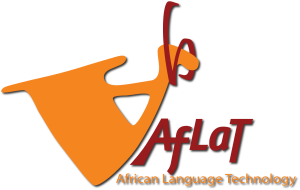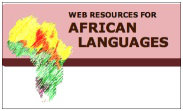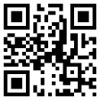ComputEL: The use of computational methods in the study of endangered languages
ComputEL
The use of computational methods in the study of endangered languages
52nd Annual Meeting of the Association for Computational Linguistics
26 June 2014
https://www.acsu.buffalo.edu/~jcgood/ComputEL.html
Workshop description
Contemporary efforts to document the world’s endangered languages—often going under the rubric of documentary linguistics—are dependent on the widespread availability of modern recording technologies, in particular digital audio and video recording devices and software to annotate the recordings that such devices produce. However, despite well over a decade of dedicated funding efforts aimed at the documentation of endangered languages, the technological landscape that supports the work of those involved in this work remains fragmented, and the promises of new technology remain largely unfulfilled. Moreover, the efforts of computer scientists, on the whole, are mostly disconnected from the day-to-day work of documentary linguists, making it difficult for the knowledge of each group to inform the other. On the one hand, this deprives documentary linguists of tools making use of the latest research results to speed up the time-consuming task of describing an underdocumented language. On the other hand, it severely limits the ability of computational linguists to test their methods on the full range of world’s linguistic diversity.
This workshop seeks to address this state of affairs by bringing together papers exploring the use of computational methods to facilitate the documentation and study of endangered languages. Possible topics may include, but are not limited to: (i) examining the use of specific computational methods in the analysis of data from low-resource languages, with a focus on endangered languages, (ii) proposing new models for the collection and management of data in endangered language settings, and (iii) considering what concrete steps are required to allow for a more fruitful interaction between computer scientists and documentary linguists. The workshop’s intention is not merely to allow for the presentation of research on these topics but also to help build a community of computational and documentary linguists who are able to effectively pair together to serve their common interests.
Submission information
Both long and short papers following ACL guidelines are eligible for submission. Long paper submissions should follow the two-column format of ACL 2014 proceedings without exceeding eight (8) pages of content plus two extra pages for references. Short paper submissions should also follow the two-column format of ACL 2014 proceedings, and should not exceed four (4) pages plus at most 2 pages for references. We strongly recommend the use of ACL LaTeX style files or Microsoft Word style files tailored for this year’s conference. Submissions must conform to the official style guidelines, which are contained in the style files, and they must be in PDF. Submission should be done via the START Conference Manager at https://www.softconf.com/acl2014/ComputEL.
Funding possibilites
This workshop is being supported by U.S. National Science Foundation Award no. 1404352. Through this award, and related sources, funding may be available for those with accepted papers to attend the workshop, especially students. Please contact Jeff Good (jcgood [at] buffalo [dot] edu) for further information.
Important Dates
18 November 2013: First Call for Workshop Papers
9 February 2014: Second Call for Workshop Papers
14 March 2014: Workshop Paper Due Date
11 April 2014: Notification of Acceptance
28 April 2014: Camera-ready papers due
26 or 27 June 2014: Workshop Dates
Organizing committee
Jeff Good, University at Buffalo (jcgood [at] buffalo [dot] edu)
Julia Hirschberg, Columbia University
Owen Rambow, Columbia University
Program Committee
Steven Abney, University of Michigan
Helen Aristar-Dry, LINGUIST List
Alexandre Arkhipov, Moscow State University
Tim Baldwin, University of Melbourne
Dorothee Beermann, Norwegian University of Science and Technology
Emily M. Bender, University of Washington
Andrea Berez, University of Hawaii
Steven Bird, University of Melbourne
Damir Cavar, Eastern Michigan University
Guy De Pauw, University of Antwerp
Sebastian Drude, Max Planck Institute for Psycholinguistics
Harald Hammarström, Max Planck Institute for Psycholinguistics
Judith Klavans, University of Maryland
Terry Langendoen, University of Arizona
Lori Levin, Carnegie Mellon University
Will Lewis, Microsoft
Mark Liberman, University of Pennsylvania
Worthy Martin, University of Virginia
Mike Maxwell, Center for the Advanced Study of Language
Steven Moran, University of Zurich
Alexander Nakhimovsky, Colgate University
Sebastian Nordhoff, Max Plank Institute for Evolutionary Anthropology
Alexis Palmer, Saarland University
Kevin Scannell, Saint Louis University
Gary Simons, SIL International
Nick Thieberger, University of Melbourne
Paul Trilsbeek, Max Planck Institute for Psycholinguistics
Doug Whalen, CUNY Graduate Center
Menzo Windhouwer, Max Planck Institute for Psycholinguistics
Fei Xia, University of Washington
- Login to post comments


